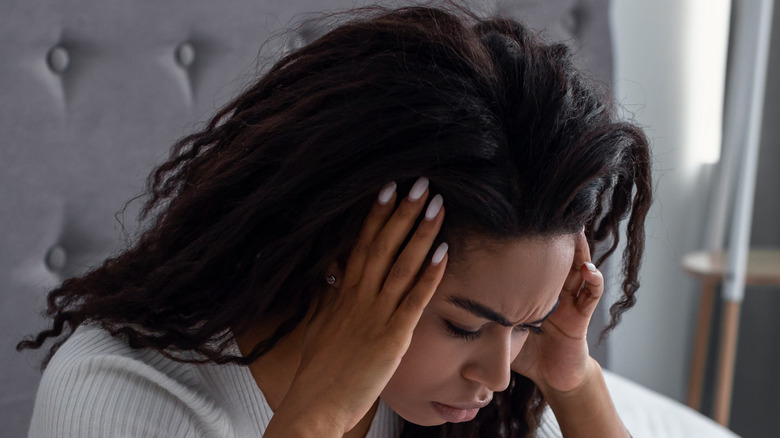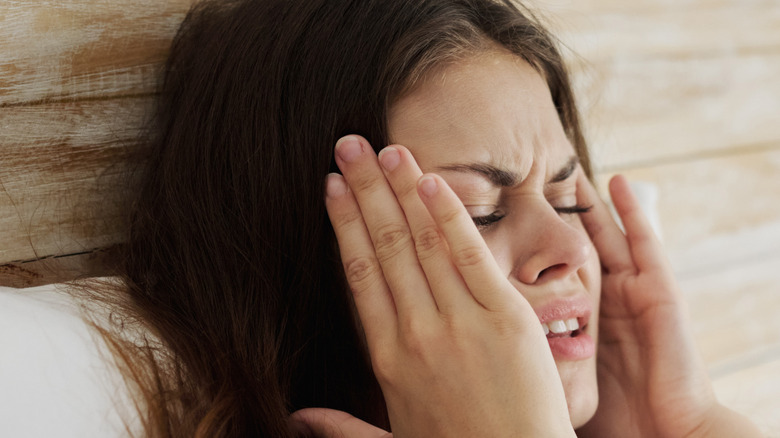This Is What Really Causes Hormonal Headaches
No headache is fun, and hormonal headaches can be particularly bothersome for women. You might experience headaches at certain times of the month or as you're nearing menopause, but what actually happens when you get a hormonal headache?
Women are typically more prone to migraines than men, and the headaches themselves often present differently, according to a 2014 review in Current Opinion in Neurology. Researchers believe that sex hormones are responsible for this difference. In women, the dominant sex hormones are estrogen and progesterone, with a small amount of testosterone as well. These hormones are responsible for a multitude of functions, including puberty, reproduction, libido, hair growth, and body fat distribution. They're mainly produced in the ovaries and adrenal glands, and they're always fluctuating. Factors like age, menstruation, stress, pregnancy, and medications can affect sex hormone levels.
Hormonal headaches and migraines can go beyond head pain. Symptoms can also include loss of appetite, fatigue, skin issues, joint pain, less urination, lack of coordination, and digestive issues.
How hormones affect pain
Research shows that hormonal headaches can be tied to drops in estrogen levels in the body. Since estrogen is tied to the parts of the brain that affect the feeling of pain, headaches can be triggered when estrogen fluctuates or dips. This often happens right before menstruation, in the years leading up to menopause (called perimenopause), and while on oral contraceptive pills or hormone replacement therapy. Since estrogen levels rise during pregnancy, headaches can typically disappear during this time, although some women experience them in their first trimester.
Hormones are complex, and scientists are still unfamiliar with how sex hormones, in particular, impact migraines. While estrogen is definitely at play when it comes to hormonal headaches, it's also involved in a number of other bodily functions and works intricately with the other sex hormones. This leads researchers to suspect that estrogen may also contribute to hormonal headaches by affecting the central nervous system, our moods, and perception of pain. Hormonal headaches can be treated by staying hydrated, reducing stress, breathing deeply, medications such as ibuprofen, and hormone therapy.


